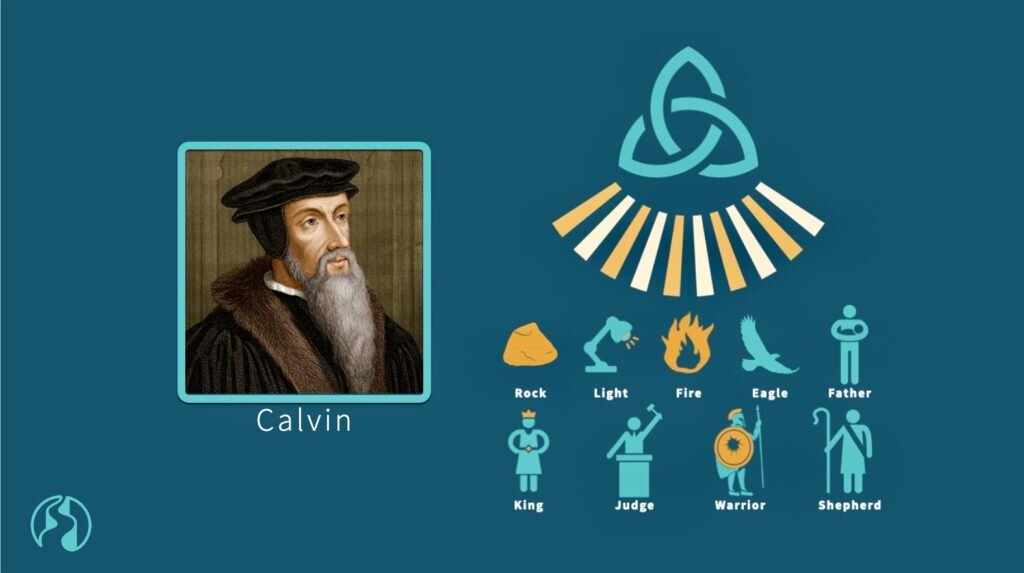The Revelation of God's Attributes (Perspectives in Theology, Part 2)
Series: Perspectives in Theology (Part 2)
Authors: Drs. John M. Frame and Steven L. Childers
Title: The Revelation of God’s Attributes
God’s revelation is through analogy
The good news is that our infinite creator God has graciously adapted his revelation of himself to our finite created capabilities, by using analogies and making comparisons with things he created. Calvin describes this as a nurse talking in baby-talk to a child she’s caring for, stooping to the child’s level to be understood.
Examples include the Bible’s descriptions of God as a rock, a light, a fire, an eagle, a father, a king, a judge, a warrior, a shepherd, and many other analogies. It is good for us to understand God’s being in all these ways. So we can and should draw strong and true similarities from these comparisons and analogies God has revealed about himself.
But, in doing so, we must realize that all biblical analogies, and descriptions, and words ultimately fall short, because it’s not possible to use analogies and words drawn from God’s finite creation to fully reveal the infinite, uncreated God.
For example, it is good for you to see God as a father, but not exactly the way you think of your earthly father. God is infinitely greater than that. He is the Father who is the standard for all fatherhood (Eph. 3:14-15). And, it is good for you to see God as a judge, but God is more than that.
When you see in Scripture that God is joyful, you should know that God’s joy is beyond the realm of human joy. And when you read in the Bible that God is angry, you should not think of God’s anger being exactly the same as human anger because it’s not. And when we read in Scripture that God repents or changes his mind, we should not think of God changing his mind like we would.
God’s revelation of his knowledge, power, and presence
To gain a deeper understanding of God’s revelation of himself in Scripture, it can be helpful to focus on three of his attributes: 1) his knowledge (omniscience), 2) his power (omnipotence), and 3) his presence (omnipresence):
God’s knowledge: He is omniscient. His unlimited knowledge includes knowing everything about everything, past, present, and future, and it includes not just knowing all facts and ideas, but knowing them from every possible perspective.
God’s power: He is omnipotent. His infinite power is being constantly exerted over every area of the universe, holding everything together, from the smallest atom to the largest planet and bringing about every event.
God’s presence: He is omnipresent. His presence is not limited by space and time. He is everywhere at once in the fullness of his being, in every square inch of the entire cosmos and for every second of the temporal sequence of life.
Although it can be helpful to focus on any one of these three attributes of God, they should not be seen as separate, compartmental aspects of God’s being, but as integrated, complementary views of God as one. Each of these communicable attributes (knowledge, power, and presence) should also be seen in light of not only God’s incommunicable attributes (infinity, eternality, immutability) but also in light of each other.
For example, God’s knowledge should be seen as being not only infinite, eternal, and unchangeable, but also a lens through which we gain a deeper understanding of God’s power and presence. Practically speaking, this means that:
God’s knowledge (omniscience) also reveals God’s power (omnipotence) above everything (omnipresence),
God’s power (omnipotence) also reveals God’s knowledge (omniscience) over everything (omnipresence), and
God’s presence (omnipresence) also reveals God’s knowledge (omniscience) in everything (omnipotence).
God’s simplicity and complexity
The relationship of God’s attributes to each other reveal that he is both simple and complex. Because God reveals himself as one being, his attributes must not be understood as being parts of his nature. Instead, God’s attributes should be seen as inseparable from his nature.
For example, God’s attributes of love, mercy, justice, wisdom, and power, etc. are not parts of him that can somehow be separated from the others. It’s not possible to separate God’s mercy from his justice or any other of his attributes. This description of God is often referred to as God’s simplicity.
Even if it were possible to separate any attribute of God from him, and it’s not, he would no longer be the God of the Bible. So when the Bible tells us that “God is love” (1 John 4:8), it’s not denying that God is also merciful, just, wise, and powerful. Practically speaking, this means God’s love is a merciful love, a just love, a wise love, and a powerful love, etc. Likewise, God’s justice is a loving justice, a merciful justice, a wise justice, and a powerful justice, etc.
We can summarize this complex integration of God’s attributes by saying that all God’s attributes include all the divine attributes. Some theologians think that to speak of God’s “complexity” violates our belief in his simplicity. But Scripture frequently emphasizes the vast multiplicity of God’s thoughts (Ps. 40:5, 139:17), his works (Job 37:14-16, Ps. 104:24, 106:7), his judgments and ways (Rom. 11:36).
When we consider God’s revelation in creation, we cannot help being amazed at the vast number of objects and relationships (indeed, the “all things” of Rom. 8:28 and Eph. 1:11) that God has coordinated to work together under his direction. That all these work as one reflects God’s simplicity; but that simplicity coordinates a vast complexity.


